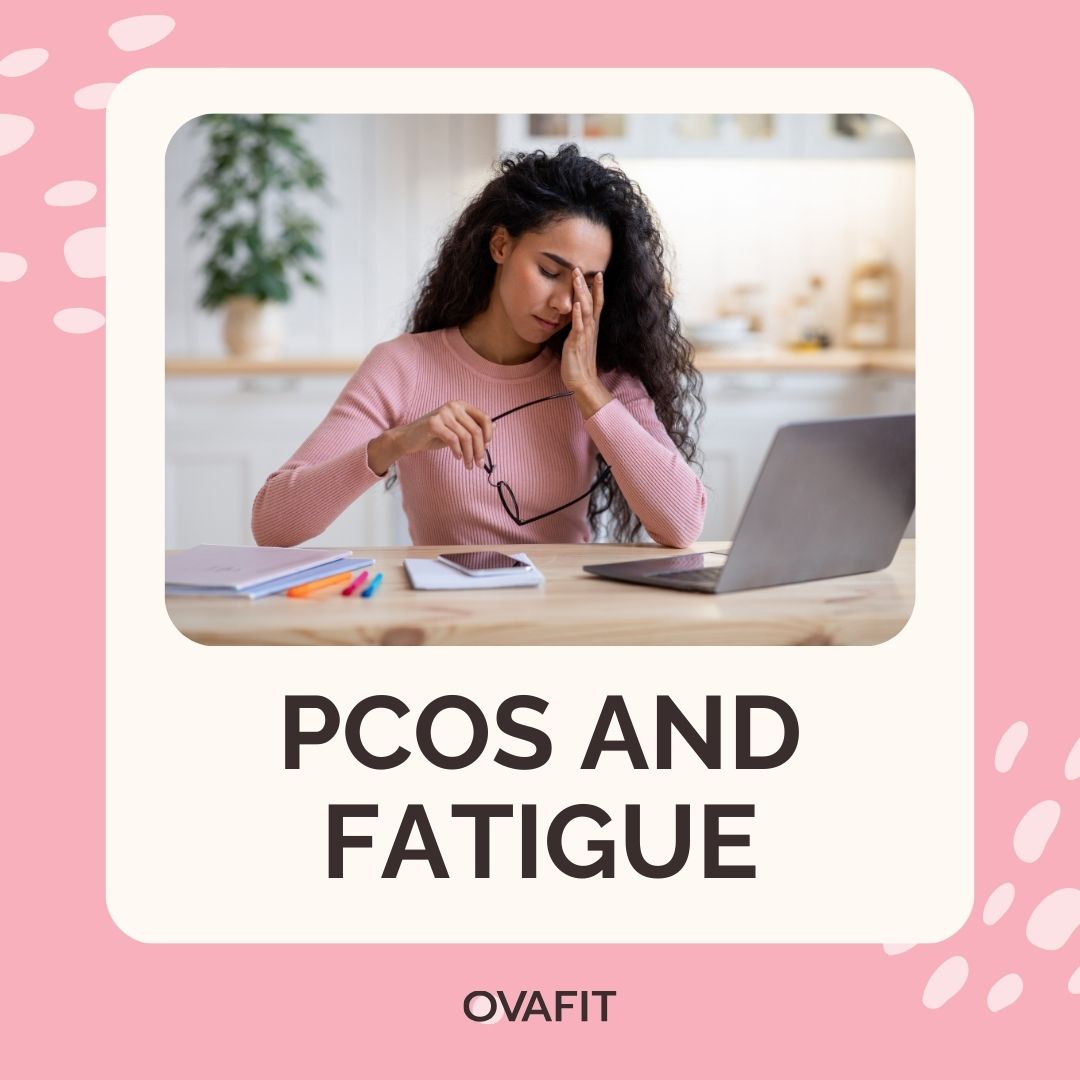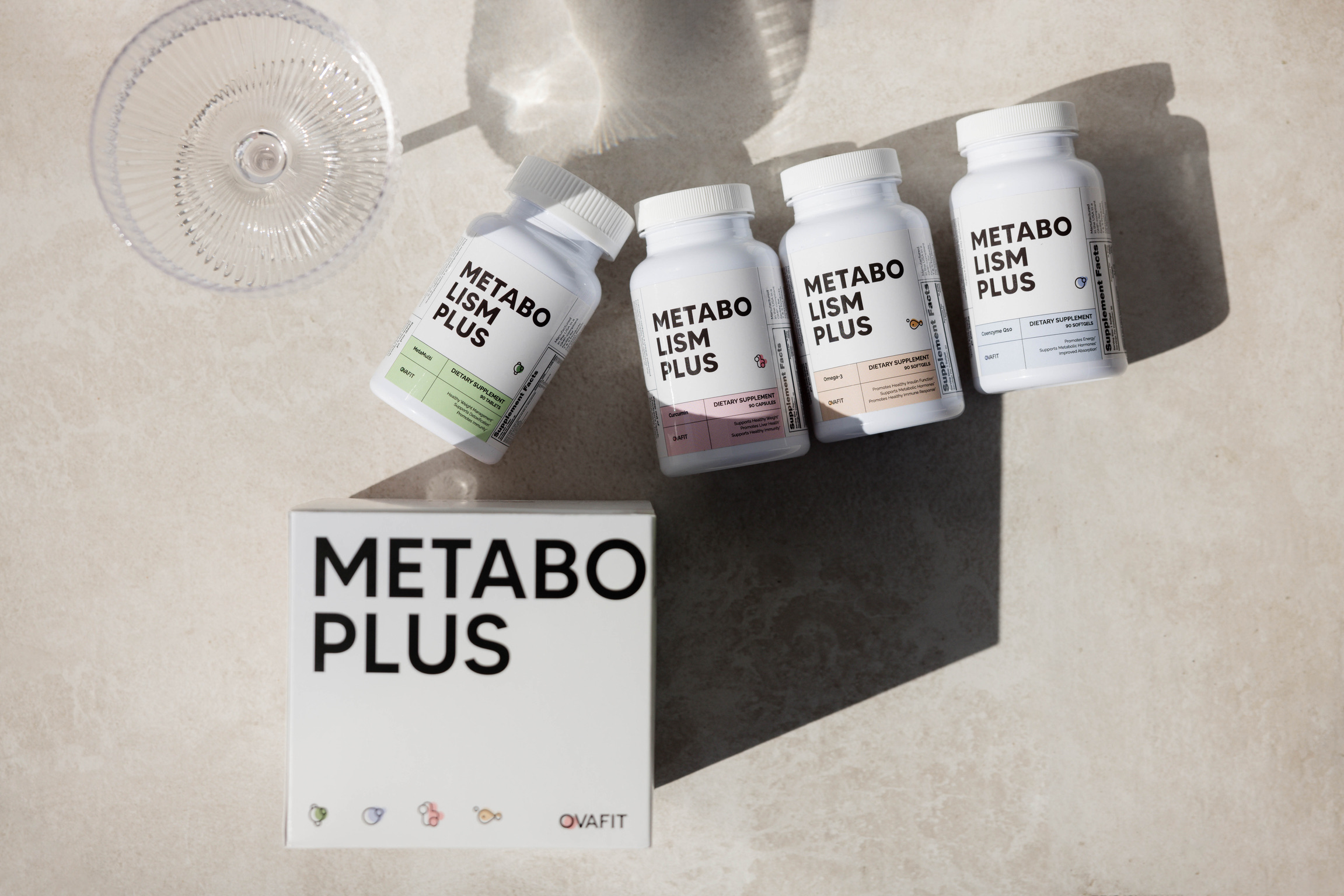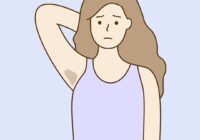Polycystic ovarian syndrome (PCOS) is a common hormonal condition that affects women of reproductive age. I call them “Cysters!” For people that don’t have PCOS, they often think about symptoms having to do exclusively with a woman’s period. Someone says “PCOS” and others think about crazy periods and difficulties getting pregnant. But there are a lot more symptoms of PCOS than menstrual problems!
One of the most common (and most difficult) symptoms a Cyster experiences is chronic fatigue. This isn’t just low energy levels midday this is a constant state of exhaustion and burnout. Many women try to fix this problem with caffeine or a few extra hours of sleep, but usually don’t see the relief they’re looking for.
If this is you, I want to help you out! In this post, I’ll be discussing the relationship between PCOS and fatigue. I’ll dive into the root causes and potential solutions that can finally give you back some energy and vitality.
Here’s the deal with PCOS fatigue:

How Are PCOS and Fatigue Related?
What Does PCOS Fatigue Feel Like?
Cysters who experience fatigue often describe an overwhelming urge to sleep. No matter what they do, they feel exhausted, weak, and totally drained. The worst part??? No amount of naps, caffeine, sunlight, or jump scares can make it better.

Does PCOS Cause Fatigue?
Absolutely! YES YES YES! If you’re a Cyster, regardless of your PCOS type, your condition is likely the reason for your fatigue. There are quite a few things at play:
Poor Sleep
First of all, you may be getting really crappy sleep. Sleep disturbances are way more common in women with PCOS, meaning many of you Cyster’s deal with insomnia, obstructive sleep apnea, and more. Not only can this make you tired, but it can also worsen other PCOS symptoms!
Hormonal Imbalances
Though sleep can play a role, if you have PCOS you can’t consider yourself safe from chronic fatigue just because you get your 8 hours. Hormones play a big role too! Specifically, Cysters often experience an imbalance of cortisol (stress hormone) and melatonin (sleep hormone.)
Factors like inflammation, insulin resistance, and just plain-old every day stress can send your cortisol levels sky-high. When they get too off balance, all that extra cortisol causes adrenal fatigue . . . and that translates to excessive daytime sleepiness.
Insulin Resistance
Speaking of insulin resistance, that can cause fatigue too! Many Cysters have insulin resistance, which means that your body doesn’t process sugar properly. Instead of converting it to energy, it absorbs into the body, causing a rise in blood sugar levels, weight gain, and, of course, extreme fatigue. Because, where is all the energy from your food going? To your PCOS belly, not your nervous system.

Nutrient Deficiencies
There are a few nutrient deficiencies that can lead to fatigue. Vitamin B12 and vitamin D are both essential for producing energy in the body, so when they’re low, it’s common for people to experience fatigue. And, women with PCOS are more likely to have vitamin B12 and vitamin D deficiencies.
Another nutrient deficiency that causes fatigue is low iron levels! The heavy periods some Cysters experience can cause low iron. Your body isn’t meant to lose that much blood! Luckily, these deficiencies are an easy fix, so get your levels tested.
Underactive Thyroid
Hyperthyroidism and PCOS are both very similar hormone conditions, so it’s pretty normal to see a Cyster with both conditions. When your thyroid is underperforming, it simply doesn’t pump out the hormones you need to feel good and be healthy. This can lead to some serious fatigue.
Take the right supplements.
One of the quickest and easiest ways to see big relief from your chronic fatigue is by taking the right supplements to fix those nutrient deficiencies. Your body needs support, and even with the perfect diet, it’s hard to get all the vitamins and nutrients you need to thrive. That’s why I launched Ovafit, which is an NSF-certified supplement specifically designed for Cysters.
The Ovafit MetaMulti in the Metabolism Plus bundle includes plenty of vitamin B12, vitamin D, and iron to help you stay energized and focused on what matters most. Plus, there are dozens of other vital nutrients to alleviate other PCOS symptoms as well. You can get the Metabolism Plus bundle here!
*As always, consult with your doctor before beginning any new supplements.

Depression
When you have PCOS, you have so much weighing on your mind. For some Cysters, being unhappy, stressed, and anxious goes beyond a “bad day.” This is why up to 49% of Cysters have depression, compared to 19% of people without. Depression can affect all aspects of your health, including your physical health.
PCOS Medications
Lastly, some commonly prescribed PCOS medications, like metformin can cause fatigue. This is because metformin sometimes triggers a vitamin B12 deficiency and we’ve already discussed how that’s not good for your energy levels.

How to Treat PCOS Fatigue
Eat an intentional and well-balanced diet.
Eating a balanced diet doesn’t just help with weight gain, it can help with hormone balance, insulin resistance, nutrient deficiencies, and more! It can seriously help you feel better in almost every way.
I recommend you consider an anti-inflammatory gluten- and dairy-free diet full of intentional foods that help you fight PCOS. You can find a meal plan and a ton of recipes on The Cysterhood app.
Prioritize getting quality sleep.
It should stand to reason that when you improve sleep, fatigue improves too. Better sleeping patterns when combined with other solutions on this list won’t only help you catch some extra Zs, but also support your body’s hormone balance and insulin sensitivity. Here are some ways you can practice better sleep hygiene with PCOS.
Drink more water.
Bodies thrive on fluid balance. A slight imbalance in fluid (AKA, not enough water) will have your blood volume dropping then your heart has to work overdrive to get nutrients and oxygen to your muscles. Of course, this makes you super tired. So, don’t get dehydrated! Drink lots of water.
Lower stress and practice self-care.
Remember those cortisol levels I was talking about? Those stress hormones don’t just come from things happening internally, they come from things happening externally, too. So, reducing stress and practicing self-care can really help reduce insulin resistance and maintain hormone balance, which will hopefully improve your fatigue.
Reduce your caffeine intake.
Do you know how caffeine works? It works by stimulating our stress hormones to make us feel more awake and alert. However, when we have cortisol that’s too high, we get wired and anxious AND we experience adrenal fatigue. Yep, that means too much caffeine will actually make you feel tired NOT energized.
Exercise and stay active.
Yes, exercise will make you feel less tired. I know that doesn’t sound right, but regular low intensity workouts can reduce fatigue by 65%. Isn’t that amazing? It’s because exercising both works out our muscles and our nervous system. Let’s get moving!
Don’t fight fatigue with coffee and energy drinks, get to the source of the problem!
Fatigue can prevent you from reaching your potential in all aspects of life, from your career to your relationships, so don’t stand for it any longer. I’m here to help you find natural solutions to your symptoms to reverse your PCOS, and it starts with getting the right supplements to support your body! For more PCOS information and natural healing methods, head over to the Ovatfit blog.






Related posts
Does PCOS Make You Tired?
4 Stages of Menstrual Cycle: Why It Matters to Women with PCOS
How to Increase AMH Hormone Levels
How To Lower DHEA In PCOS
How To Fix Low Libido: PCOS Edition
How To Reduce Cortisol: PCOS Symptom Relief
10 PCOS Breakfast Recipes for Symptom Relief and Weight Loss
PCOS Tea Blend Recipe to Reduce Testosterone